A healthy economy and rising wages have brought about a period of relative industrial peace in recent years. Despite this, there have been some high-profile strikes and disputes.
During the election campaign, trade unions and representative groups have highlighted a number of issues that they want to see addressed by the next Government.
The manifestos of all the political parties contain promises relating to workers' rights and pay.
Health staffing
As soon as the next Government takes office, it could be hit with a major industrial dispute impacting the country's health service.
In the coming days, health unions will announce the results of industrial action ballots in a dispute over staff shortages.
Initially, the action would likely take the form of a work-to-rule but this could be upgraded to strike action.
The group of trade unions, which includes the Irish Nurses and Midwives Organisation (INMO), Fórsa and SIPTU, has said that recruitment restrictions in the health sector are putting services under enormous strain and are putting patient safety at risk.
Since last month, unions have been engaging in a series of lunchtime protests to highlight the issue.
The HSE has described the action as "regrettable" against the background of additional funding for the health service and increasing staff numbers.
It said that its Pay and Numbers Strategy has enabled it to stabilise its workforce numbers and has allowed it to increase staffing levels.
Section 39 workers
In October 2023, a pay agreement was reached with staff in the community and voluntary sector, hours before strike action was due to commence involving 5,000 workers across 17 organisations.
The agreement included an offer from the Government of an 8% increase in funding for wages which was to benefit workers in Section 39, 56 and 10 organisations.
These are privately run bodies that are contracted to provide services for the State in areas such as health, children's services and homeless supports.
The deal was designed to close the pay gap between workers in the community and voluntary sector, and those who are paid directly by the State in agencies such as the HSE.
Charities have warned however, that although the pay deal was agreed more than a year ago, many workers have yet to receive their increases and pay parity with State employees has not yet been achieved.
They say this means a recruitment and retention crisis is ongoing which is impacting the vital services that are provided to some of the country's most vulnerable citizens.
EU Directive
Earlier this month, the Government said it expected to meet a deadline to transpose a major EU directive on workers' rights.
Unions, however, accused the State of not fully implementing the rules by failing to pass new legislation.
The EU Directive on Adequate Minimum Wages seeks to reduce working poverty and inequality by improving statutory minimum wages, as well as promoting collective bargaining.
Collective bargaining is the process of negotiation between employers and employee representatives such as trade unions.
Under the directive, member states with less than 80% collective bargaining coverage, which includes Ireland, must establish an action plan to promote collective bargaining.
The Department of Enterprise said it had received legal advice that Ireland's current minimum wage setting framework is largely already in compliance with the provisions of the directive, and that no new legislation is required on the collective bargaining side.
The Irish Congress of Trade Unions (ICTU) said it was "disgraceful and unacceptable" that the Government had failed to fully transpose the directive.
The country's largest trade union SIPTU has warned that there could be industrial unrest and protest over the Government's failure to legislate for the directive.
Remote work and four-day week
Fórsa, the country's largest public-sector union, has called on the next Government to pilot a four-day working week in parts of the public and civil service.
The union said this would be done without loss of pay or productivity and would be undertaken in consultation and agreement with the relevant trade unions.
Fórsa also called for the protection of remote working to be a priority for parties.
On the issue of pay, the union said it wants the next Government to negotiate and agree with trade unions a successor pay deal, with increases in real terms that go beyond inflation, to follow the current public sector pay agreement which runs until 2026.
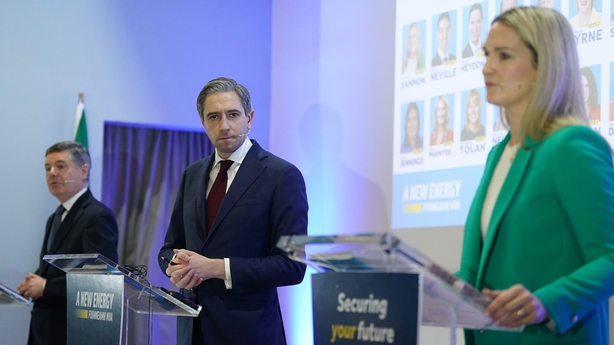
It is also calling for a reduction in the number of increments in public service pay scales and for the replacement of the minimum wage with a living wage.
Fine Gael
In its manifesto, Fine Gael said it will aim to achieve pay parity for staff in Section 39 organisations with the public sector.
The party pledged to publish an action plan for collective bargaining in 2025 and, if necessary, bring forward legislation to support it.
According to its manifesto, Fine Gael will "embed" hybrid and remote working, promoting flexible working arrangements that benefit both workers and employers, ensuring a balanced approach.
Fine Gael said it will support the Low Pay Commission and ensure that its recommendations are compatible with the SME Test, balancing fair wages with the sustainability of small and medium-sized enterprises.
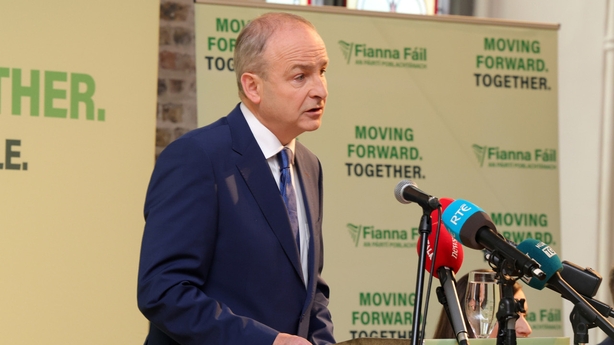
Other plans include a pledge to retain sick leave at five days per year and to make apprenticeships more accessible and relevant.
Fianna Fáil
According to Fianna Fáil's manifesto, it will aim to achieve pay parity with the public sector for Section 39 staff.
The party said it will continue to strengthen the Social Partnership model and seek to negotiate a new national wage deal following the completion of the current Public Services Agreement in 2026.
Fianna Fáil said it will ensure that the pay deal strengthens public services, drives public service reform and recognises the central contribution of workers in the delivery of better public services.
The party also said it will ensure employment law is upheld.
Other plans include the launch of a new processing system for employment permits to speed up applications and the expansion of the categories of roles eligible for permits to include retail, hospitality, care work and construction trades.
Sinn Féin
Sinn Féin has promised to deliver a legal right to collective bargaining and has pledged to increase the minimum wage by €1.10 per hour in 2025.
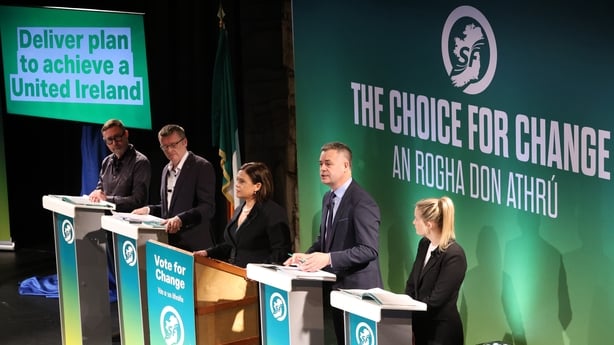
Its manifesto vows to end pay disparities between core service provider Section 39 organisations and the HSE.
The party said it will outlaw bogus self-employment and the blacklisting of trade unionists.
Sinn Féin said it would increase funding for the Workplace Relations Commission and protect workers from undue workplace surveillance.
Other measures include promises to abolish mandatory retirement and to deliver the remote working code of practice.
Labour Party
Given its trade union roots, it is no surprise that the Labour Party has devoted a lengthy section of its manifesto to workers' rights.
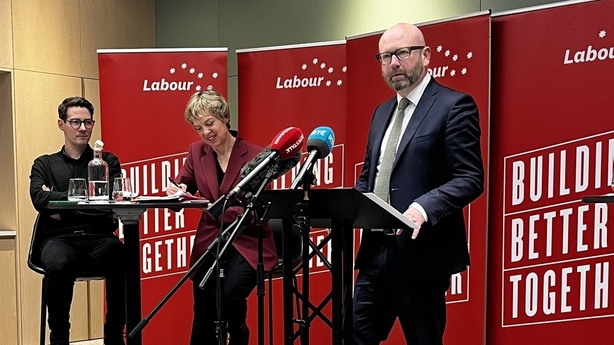
The party said it will transpose in full the provisions of the EU Adequate Minimum Wages Directive and put in place a comprehensive programme to promote collective bargaining.
It has vowed to bring the terms and conditions of staff in Section 39 bodies in line with the public service through pay parity.
Labour said it will establish a new Department of Work and Social Protection, ensure the national living wage is set at 60% of median hourly earnings by 2026, eliminate bogus self-employment and strengthen gender pay gap legislation.
Other pledges include a plan to limit the use of AI for worker surveillance, the designation of Good Friday as a public holiday, legislation for stronger flexible working rights and the promotion of ongoing trials and adoption of four-day working weeks.
Green Party
The Green Party manifesto promises to support parity of pay for Section 39 workers.
The party has pledged to convene a Citizens' Assembly on the four-day working week, introduce an additional bank holiday and expand the right to request flexible working.
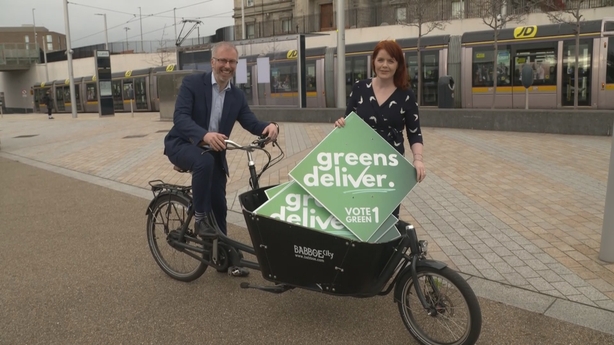
According to its manifesto, the Green Party will support the implementation of a living wage and work to promote collective bargaining by transposing and legislating for the provisions of the EU Pay Transparency Directive.
The party said it will regularly update the Critical Skills Occupations List to ensure the country has enough workers for essential sectors of the economy.
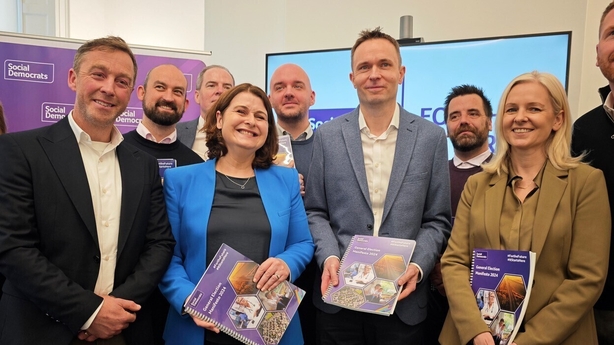
Other measures include a promise to devise a support scheme for small businesses struggling with the introduction of new worker’s rights including sick pay and auto-enrolment.
Social Democrats
The Social Democrats' manifesto contained a promise to transpose and implement in full the provisions of the Adequate Minimum Wages Directive and the Provisions of the Platform Work Directive that promote Collective Bargaining.
The party said it will create a regular review of the living wage benchmark, make the two main income tax credits refundable, reform the workings of Joint Labour Committees (JLCs) and combat precarious working practices.
Other measures include plans to expand unfair dismissal protections, restore delayed increases in statutory sick leave, increase parents’ paid leave, introduce stronger flexible working rights and seek to increase the number of annual bank holidays.
People Before Profit-Solidarity
In its manifesto, People Before Profit-Solidarity is calling for mandatory union recognition and the repeal of the 1990 Industrial Relations Act to allow workers to take "effective" strike action.
The party said it will enact the EU Directive on Minimum Wages, introduce a living wage of at least €15 an hour, increase holidays to 30 days and two extra Bank Holidays, introduce full employment rights for migrant workers and end bogus self-employment.
Other measures proposed include increased protections from dismissal, pension reforms, a four-day week without loss of pay, an expansion of sick pay entitlements and the doubling of redundancy pay.
Other parties
Aontú's manifesto includes a plan called 'Operation Shamrock' which would see Irish workers living overseas who return home to take up jobs getting an initial €5,000 grant and a tax break of €10,000 if they stay in the job for several years.
The policy would focus on medical and construction roles.
Independent Ireland said it will subsidise rental accommodation for front-line workers such as nurses, junior doctors, teachers and gardaí, as well as members of defence forces and fire brigade.
It would also introduce "locality pay" for civil and public servants, to attract skilled civil servants in higher-cost urban settings.
Right to Change has vowed to eliminate precarious employment, defend the right to take effective strike action and reform the insolvency laws to put workers at the top of the queue in liquidation situations.







